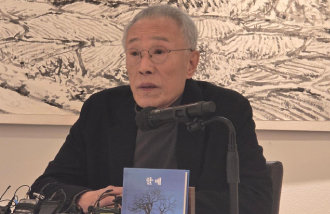Economic recovery impossible without controlling prices
Economic recovery impossible without controlling prices
Posted April. 06, 2022 08:08,
Updated April. 06, 2022 08:08
Consumer prices jumped 4.1 percent in March alone, the highest growth in 10 years and three months. While the world is recovering from the impact of the COVID-19 pandemic and seeing an increase in demand, there is a disruption in the production and supply of oil, raw materials and agricultural, livestock and fishery products due to Russian invasion of Ukraine. These are bad news affecting South Korea, which imports most of its energy and raw materials. The biggest factor behind inflation was petroleum products, which surged 31.2 percent year-on-year. The prices of agricultural products, such as flour and cooking oil, have risen sharply as Ukraine and Russia, Europe’s farm belts, are in war. More office workers are eating meals at in-house cafeterias as the cost of eating out has also risen. As prices affecting our everyday lives have risen, the cost of living increased 5.0 percent.
There are a number of factors that will push prices further up. No one knows when the war in Ukraine will end and it is unclear when the global supply chain will be fixed. International oil prices fell for a while after the U.S. released its strategic petroleum reserves, but oil prices will eventually rise again unless oil-producing countries increase production. If the South Korean government does not immediately increase public utility fees, which has been delayed until after the presidential election, the Korea Electric Power Corporation could face financial difficulties. The labor sector insists on raising the minimum wage by 8.5-10 percent next year, citing rising prices. The 50-trillion-won supplementary budget pledged by President-elect Yoon Suk-yeol could result in unstable prices if money is released into the market all at once.
Some predict that the Yoon Suk-yeol administration, which will be launched on May 10, will face a similar economic situation, which could be similar to the first year of the Lee Myung-bak administration. When international oil prices soared to 140 U.S. dollars a barrel, causing consumer prices to increase over 5 percent in 2008, the Lee administration tried to control prices by creating “MB price index” without little success. The Lee administration had to struggle throughout its term by getting off to a bad start. The current situation is no better than 14 years ago, considering that a new Cold War between the U.S. and Russia and the ensuing reorganization of the global supply chain are just beginning.
An economic expert, who recently lectured Yoon Suk-yeol’s transition committee on economic issues, advised that the people will forgive them if they fail to achieve economic growth, but they will not if they fail to control inflation. High prices have a stronger negative impact on the low-income bracket, exacerbating socioeconomic bipolarization. There will be fewer jobs on the market if the business profitability of companies and the self-employed deteriorates due to the rise in raw material prices. Reform policies, no matter how well-justified they are, will lose momentum if they are caught up in rising prices, which come before all other issues. The country’s economy in general is currently in emergency. The Yoon administration should focus on coming up with measures that will actually help the livelihood of the people rather than presenting grandiose goals.







